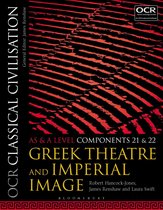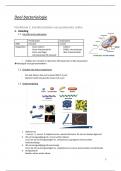1.1
The Religious Context of the Dramatic Festivals
The tradition of theatre in western civilisation was born in Athens during the 6th century, yet drama was
performed only at religious festivals. Ancient Athenian dramatic festivals were intimately associated with the
worship of Dionysus, and a key element of the Athenian dramatic festival was its competitive element
(playwrights entered plays to be judged) and its processions, sacrifices and revelry in honour of Dionysus.
Festivals of Dionysus were commonly during the winter months, with the most popular being the city
Dionysia, the Lenaea, and the Rural Dionysia.
The city Dionysia was held in late March; with it came the reopening of sea lanes and the start of the sailing
season, allowing the Athenians to welcome outsiders. During the festival, shops shut and prisoners were
given day-release to watch the plays. The festival was organised by the eponymous archOn; a leading
politician of Athens whom the Athenian civil year was named after.
Any tragic playwright wishing to compete in the festival presented four plays (three tragedies and a satyr) to
the eponymous archOn, whereas comic playwrights only needed to present one play. The archOn selected
three tragic playwrights and five comic playwrights, and a chorEgos for each. The chorEgos was the financial
backer for a set of plays and his input was vital. He was drawn from the city’s elite, and funded by liturgies; a
tax on the super-rich requiring them to contribute to the functioning of Athens. The chorEgos paid for
everything; even a professional trainer if the playwright couldn’t train his own chorus. However, sponsoring
such a festival was an honour, and if the playwright won, the choregOs could pay for a victory monument
inscribed with his own name, the archOn, the main actors and the musicians.
• proagon (a few days before)
The proagon was held in the Odeion, a covered concert hall next to the theatre of Dionysus. Here, the plays
were announced, and the playwrights would deliver a short synopsis (possibly introducing his choregOs,
actors and musicians, and have an actor read a short excerpt to give the audience a taste). This was the only
time that the actors would appear without masks.
• torchlight procession (the eve of the festival)
A wooden statue of Dionysus was brought to the city from a shrine on the road to Eleutherae. This procession
re-enacted Dionysus’ original arrival, and would finish in the theatre of Dionysus with a sacrifice, with the
statue remaining there as a symbol of the god’s presence.
• pompE (day 1)
The grand procession, called pompE, took place on the first morning, starting outside the city and onto the
agora and then the Temple of Dionysus with various sacrifices held.
• dithyrambic contests (day 1)
, The dithyrambs (choral dances in honour of Dionysus) were held in the afternoon, with each political division
of Athens (called a tribe) entering choruses for the event.
• kOmos (day 1)
A revel would be performed by the men of the city in the streets.
• opening ceremony (day 2)
Lots were drawn for the order of the plays. Thee opening ceremony was held in the Theatre of Dionysus and a
priest of Dionysus sacrificed a piglet on the altar in the acting area, and the city’s ten generals poured
libations to the twelve Olympian gods.
The parade of tributes from Athens’ subject-allies was paraded through the theatre, a herald announced the
names of those who had done outstanding service for the city and awarded them a crown (proclamation of
honours) and the sons whose fathers had died fighting for Athens were paraded into the theatre (parade of
orphans). Their education was paid for by the state as a mark of respect for their fathers’ sacrifice, and those
who had turned 18 that year were awarded a suit of armour and declared independent citizens.
• five comedies (day 2)
• 3 tragedies, 1 satyr play (day 3)
• 3 tragedies, 1 satyr play (day 4)
• 3 tragedies, 1 satyr play (day 5)
Entry cost two obols a day (roughly a day’s wage for an unskilled worker) meaning that the poor were
probably excluded until the Theoric Fund was introduced; a fund provided by the state which paid for the
entrance fee for the poorest citizens, allowing the dramatic contests to be open to a full range of citizens and
emphasising the democratic nature of the festival.
The front-row seats were reserved for the important officials, including the priest of Dionysus. The seating
area was divided by tribes from the late fourth century onwards; it’s unknown if women watched. The
spectators, especially in comic audiences, were loud and involved in the play; hissing, hooting or kicking
their heels. A theatre police force kept things under control by beating those who behaved badly.
• judging and prize-giving (day 5)
Before the festival began, the Athenian council drew up a list of names from the ten tribes of the city. Each
tribe's name was sealed in an urn and the ten were stored on the Acropolis.
On the first morning of the plays, the ten urns were placed in the theatre and the eponymous archOn drew
out one name from each urn. These ten chosen citizens swore an oath of impartiality and sat as judges for
the competition.
On the fifth day, each judge wrote down his order of merit on a tablet. All ten tablets were placed in a single
urn. The archOn drew out five tablets at random and the playwright with the most votes was declared the
winer.
• the review (a few days later)
A few days later, the athenian assembly met in the Theatre to review the festival, and any citizen could make
a complaint if he felt that it had not been run well. Upheld complaints meant that the archOn could be fined,












